Upcoming Events

- Brian Fairley (UCIS/REEES Postdoctoral Fellow)
- 4:00 pm to 5:30 pm
- Baker Hall 246A, Carnegie Mellon University Soviet Georgian cultural history
This paper deals broadly with a history of music, technology, and changing ideas of race and ethnicity in the twentieth century. It focuses on Leningrad, where researchers in 1935 at the Institute of Anthropology, Archaeology, and Ethnography conducted recording experiments involving Georgian folk singers. Using the work of Maxim Gorky, Romain Rolland, and the hugely inflectional linguist Nikolai Marr, it shows how Georgian music inspired and challenged leading theories of language, nationality, and cultural evolution at a pivotal moment in Soviet history. Part of the Socialist Studies Seminar series.

- 12:00 pm
- Cathedral of Learning Commons Room
Don’t have a chance to travel during fall break? Join us to experience hospitality of the cultures of Eastern Europe and its surrounding regions through food, music and educational information! This event will bring together Pitt student organizations & academic units, the Nationality & Heritage Room committees, and other community members to learn about and celebrate the rich East European cultural history of the Pittsburgh region. The first 100 Pitt students with a Pitt ID can get a free treat from Jak’s Bakery and Steel City Chimneys! Co-Sponsors: NRIEP, Slavic Department, Summer Language Institute, Bosnian, Croatian, Serbian, Montenegrin Program; Hungarian Language Program; Modern Greek Language Program; Polish Language Program; Russian Language Program; Slovak Language Program; BCMS Club; Polish Culture Club; Russian Club; Slovak Club; Ukrainian Club; Pitt GEO; REEES; GOSECA Nationality and Heritage Room Committees: Czechoslovak, Hungarian, Romanian, and Yugoslav
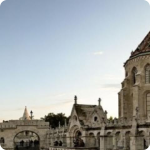
- Viktoria Batista
- 4:00 pm to 5:00 pm
- Braun Room (12th Floor), Cathedral of Learning
Tuesdays, 4-5pm
Braun Room (12th Floor), Cathedral of Learning
Come to chat, practice, meet others who are interested in Hungarian and Hungary! All levels are welcome.
For more info, contact Dr. Viktoria Batista (vib21@pitt.edu)
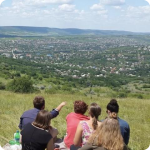
- 1:00 pm to 2:30 pm
- Global Hub, Posvar Hall
Interested in studying, researching, or teaching abroad? Join American Councils for International Education to learn about opportunities across Eurasia, East Asia, and beyond. Programs emphasize advanced language study, area expertise, and cultural immersion.
Opportunities for faculty and undergraduate & graduate students:
- Explore summer, semester, and year-long options
- Learn about fellowship, scholarship, and financial aid opportunities
- Connect programs to UCIS global and area studies
Discover how you can build language skills, expand research, and engage globally with the support of Pitt's University Center for International Studies and American Councils.

- Viktoria Batista
- 4:00 pm to 5:00 pm
- Braun Room (12th Floor), Cathedral of Learning
Tuesdays, 4-5pm
Braun Room (12th Floor), Cathedral of Learning
Come to chat, practice, meet others who are interested in Hungarian and Hungary! All levels are welcome.
For more info, contact Dr. Viktoria Batista (vib21@pitt.edu)

- 4:00 pm
- Andrew Carnegie Music Hall - Carnegie, PA
Hear the thoughts of the Ukrainian People from Ukraine and in the Diaspora. Collaboration with local artists. Information and tickets @ https://kyivdance.org/my-thoughts-production Ukrainian Marketplace Opens 2pm
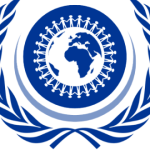
- 8:00 am to 4:00 pm
- William Pitt Union and O'Hara Student Center, Pitt-Oakland Campus Model United Nations high school simulation
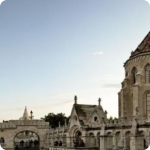
- Viktoria Batista
- 4:00 pm to 5:00 pm
- Braun Room (12th Floor), Cathedral of Learning
Tuesdays, 4-5pm
Braun Room (12th Floor), Cathedral of Learning
Come to chat, practice, meet others who are interested in Hungarian and Hungary! All levels are welcome.
For more info, contact Dr. Viktoria Batista (vib21@pitt.edu)
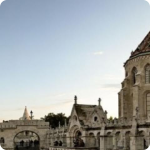
- Viktoria Batista
- 4:00 pm to 5:00 pm
- Braun Room (12th Floor), Cathedral of Learning
Tuesdays, 4-5pm
Braun Room (12th Floor), Cathedral of Learning
Come to chat, practice, meet others who are interested in Hungarian and Hungary! All levels are welcome.
For more info, contact Dr. Viktoria Batista (vib21@pitt.edu)

- Tatyana Gershkovich, Associate Professor, Carnegie Mellon University
- 5:00 pm to 6:30 pm
- 4130 Posvar Hall
Join CMU Associate Professor of Russian Studies Tatyana Gershkovich for the launch of this new book, translated and edited with Stephen H. Backwell, and recently published by Academic Studies Press! Yuli Aikhenvald was one of the most popular and influential Russian literary critics of the early 1900s. His major book, Silhouettes of Russian Writers, went through six ever-expanding editions. A major presence in Vladimir Nabokov’s early career, Aikhenvald has since been neglected by other writers and critics. This collection translates several of Aikhenvald’s key essays, making him available to English-speaking readers for the first time.
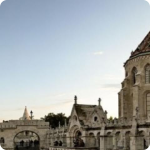
- Viktoria Batista
- 4:00 pm to 5:00 pm
- Braun Room (12th Floor), Cathedral of Learning
Tuesdays, 4-5pm
Braun Room (12th Floor), Cathedral of Learning
Come to chat, practice, meet others who are interested in Hungarian and Hungary! All levels are welcome.
For more info, contact Dr. Viktoria Batista (vib21@pitt.edu)

- Anna Shternshis (University of Toronto)
- 4:00 pm
- Baker Hall 246A, Carnegie Mellon University Soviet history
In 1945, Shikl Gershberg sang a song about the massacre by German and Romanian troops that killed 437 people in his small Ukrainian town in July 1941. It ended with the haunting line: "Our town of Zhabokrych became a cemetery." For many years, the song was the only memorial to Gershberg's family and community. A physical monument remained unrealized due to restrictions by Soviet authorities. This paper, based on newly discovered archival materials, oral histories, and memoirs, examines how Soviet citizens dealt with state prohibitions against public commemorations of Holocaust victims, and engaged in personal and communal acts of remembrance after the war. Part of the Socialist Studies Seminar series.

- Viktoria Batista
- 4:00 pm to 5:00 pm
- Braun Room (12th Floor), Cathedral of Learning
Tuesdays, 4-5pm
Braun Room (12th Floor), Cathedral of Learning
Come to chat, practice, meet others who are interested in Hungarian and Hungary! All levels are welcome.
For more info, contact Dr. Viktoria Batista (vib21@pitt.edu)
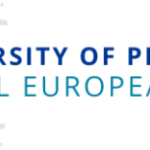
- 8:00 am to 4:00 pm
- William Pitt Union simulation, European Union
The High School Model European Union is an annual event for area high school students. The goal of the Model EU is to give high school students a chance to learn about the workings of the European Union through a hands-on simulation. Playing the roles of presidents and prime ministers, students spend a day engaged in intense negotiations over conflicting issues about the EU. The objective is to simulate a specific European Council meeting that focuses on recent current events impacting the EU. Model EU enhances students’ understanding of classroom learning and gives them a real sense of the challenges involved in the decision-making process of the European Union.
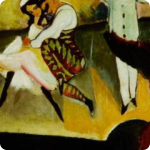
- Daria Khitrova
- 6:30 pm to 8:00 pm
This webinar is the second in a six-part series The Arts of Eastern Europe and Eurasia, designed to support educators in bringing the arts of Russia, Eastern Europe, and Eurasia into their classrooms. During this session, we will learn about the Russian ballet as a powerful cultural force shaped by political, religious, and aesthetic pressures from the 19th to the 20th century. We will examine how ballet was viewed by critics, dancers, and administrators—as both an “impossible” art form and a near-religious practice of survival and expression. Educators will gain tools to connect performing arts with broader historical and cultural themes, enriching classroom discussions around artistic expression under authoritarian regimes, the role of tradition in modernity, and how art can serve both resistance and conformity. https://daviscenter.fas.harvard.edu/events/russian-ballet
- 1 of 2
- next ›
